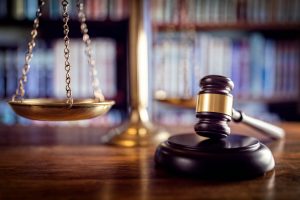On
May
23,
US
District
Judge
Allison
Burroughs
granted
a
temporary
restraining
order
barring
the
Trump
administration
from
kicking
Harvard
University
out
of
the
Student
and
Exchange
Visitor
Program
(SEVP)
that
allows
it
to
sponsor
foreign
student
visas.
The
government
wasn’t
subtle
about
kneecapping
the
school
as
punishment
for
First
Amendment
protected
activity,
and
even
explicitly
tied
the
decision
to
the
school’s
failure
to
ensure
“viewpoint
diversity”
on
campus.
At
a
hearing
on
May
29,
the
judge
made
clear
that
she
was
going
to
issue
a
permanent
injunction
irrespective
DHS’s
efforts
to
retcon
a
paper
trail
to
justify
its
arbitrary
decision
to
kick
Harvard
out
of
the
program.
But
when
God
closes
a
door,
she
opens
a
window.
And
the
president
is
pretty
sure
he
is
a
walking
deity,
so
he
devised
a
scheme
to
vandalize
the
nation’s
oldest
university
another
way.
On
June
4,
he
issued
a
proclamation
purporting
to
“enhance
national
security”
by
“addressing
risks
at
Harvard
University.”
Citing
exactly
the
same
list
of
sins
used
to
justify
the
now-enjoined
ejection
from
SEVP,
the
president
“determined
that
it
is
necessary
to
restrict
the
entry
of
foreign
nationals
who
seek
to
enter
the
United
States
solely
or
principally
to
participate
in
a
course
of
study
at
Harvard
University
or
in
an
exchange
visitor
program
hosted
by
Harvard
University.”
The
proclamation
purported
to
rest
on
the
president’s
authority
under
§§
212(f)
and
215(a)
of
the
Immigration
and
Nationality
Act
(INA),
along
with
8
U.S.C.
1182(f)
and
1185(a),
which
“authorize
the
President
to
suspend
entry
of
any
class
of
aliens
whose
entry
would
be
detrimental
to
the
interests
of
the
United
States.”
So,
instead
of
forcing
Harvard
to
shut
its
doors
to
foreign
students,
Trump
is
instead
slamming
the
doors
to
the
entire
United
States
to
the
“class”
of
foreign
students
headed
for
the
school.
The
next
day,
the
school
filed
an
amended
complaint
and
a
motion
for
yet
another
TRO
asking
Judge
Burroughs
to
enjoin
the
proclamation.
As
they
point
out,
the
supposed
“class”
of
dangerous
foreigners
is
only
a
national
security
threat
insofar
as
they
intend
to
matriculate
in
Cambridge,
Massachusetts.
They
are
apparently
harmless
at
any
other
school
in
the
country.
The
statute
gives
the
President
authority
to
protect
the
nation
from
a
class
of
aliens
whose
entry
would
be
“detrimental
to
the
interests
of
the
United
States.”
8
U.S.C.
§
1182(f).
But
the
President
is
not
suspending
entry
for
any
class
of
aliens.
To
the
contrary,
all
of
those
aliens
may
enter
the
Country
unabated,
just
as
long
as
they
go
to
any
school
but
Harvard.
The
President’s
actions
thus
are
not
to
protect
the
“interests
of
the
United
States,”
but
instead
to
provide
another
means
for
the
Administration
to
retaliate
against
Harvard
for
the
exercise
of
its
constitutional
rights.
The
amended
complaint
also
added
a
whole
bunch
of
new
evidence
that
the
Trump
administration
is
acting
to
suppress
and
retaliate
against
Harvard’s
First
Amendment
protected
speech.
Politico
reports
that
dozens
of
high-level
executive
branch
officials
met
to
“brainstorm”
ways
to
attack
the
school,
after
which
Secretary
of
State
Marco
Rubio
announced
a
“pilot”
program
for
“enhanced
vetting”
of
visa
applicants
which
just
so
happened
to
involve
one
and
only
one
school.
As
usual,
President
Trump
made
sure
to
announce
his
animus.

And
it
worked.
Within
hours
“the
absolute
best
Judge
(for
them!)”
issued
another
TRO
blocking
implementation
of
the
proclamation
and
setting
a
hearing
for
June
16.
Who
“will,
in
the
end,
WIN!”
remains
up
in
the
air.
Harvard
v.
DHS
[Docket
via
Court
Listener]
Liz
Dye
lives
in
Baltimore
where
she
produces
the
Law
and
Chaos substack and podcast).

















